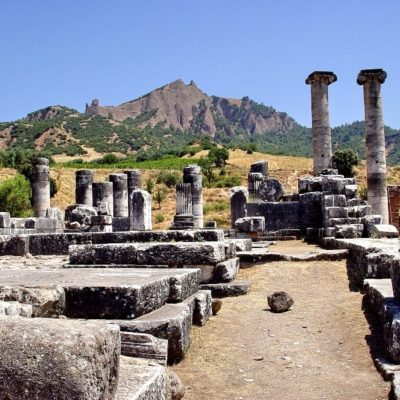Reformed Episcopal Church (REC):

The Reformed Episcopal Church is an Anglican Church in the United States and Canada and a founding member of the Anglican Church in North America. The Reformed Episcopal Church recognize the Thirty-nine Articles of Religion, the Book of Common Prayer, and the Ordinal.
They focuses their worship on God and not on man. It is rich in biblical preaching and consistent with the English Protestant Reformation as expressed by their American Forefathers.
The Reformed Episcopal Church is faithful to the inerrant Word of God, proclaiming the unchanging Gospel of Jesus Christ and worshipping Him in Spirit and in Truth using the Book of Common Prayer.
History:
It was in the 19th century, just as the Oxford movement urged that the Protestant Episcopal Church and the Church of England return to Anglicanism’s roots in pre-Reformation Catholic Christianity. The Oxford movement was a movement of High Church Anglicans, eventually developing into Anglo-Catholicism. The movement, whose members were often associated with the University of Oxford, argued for the reinstatement of lost Christian traditions of faith and their inclusion into Anglican liturgy and theology. They conceived of the Anglican Church as one of three branches of the Catholic Church. George David Cummins, the Assistant Bishop of the Episcopal Diocese of Kentucky, became concerned about the preservation of Protestant, Evangelical, Reformed, and Confessional principles within the church. (Price, 1902 p. 18-19).
The founding of the Reformed Episcopal Church followed an 1873 controversy about ecumenical activity. Bishop Cummins joined with Dean Smith of Canterbury, William Augustus Muhlenberg, and some non-Anglican ministers at an ecumenical conference of the Evangelical Alliance. They organized the first general council of the Reformed Episcopal Church in New York City in December 1873 by eight clergymen and twenty laymen who were formerly priests and members of the Protestant Episcopal Church.
The Reformed Episcopal Church was organized in New York City in 1873.
Church condemns and rejects the following erroneous and strange doctrines as contrary to God’s Word: 1.the Church of Christ exists only in one order or form of ecclesiastical polity:
2. That Christian Ministers are “priests” in another sense than that in which all believers are a “royal priesthood:”
3. That the Lord’s Table is an altar on which the oblation of the Body and Blood of Christ is offered anew to the Father:
4. That the Presence of Christ in the Lord’s Supper is a presence in the elements of Bread and Wine:
5. That regeneration is inseparably connected with Baptism.
The Reformed Episcopal Church was originally divided into 4 synods. The division into dioceses was only adopted in 1984.
Doctrine and organization of the Reformed Episcopal Church are similar to that of the Episcopal Church. The exceptions were Holy Scripture is the highest authority in the Reformed Episcopal Church. The Reformed Episcopal Church holds to the 38 Articles of Religion. Reformed Episcopal Church is not like the General Convention of the Episcopal Church USA since her bishops do not constitute a separate house but, rather, vote with the Clergy.
The Reformed Episcopal Church follows a set of creed, following the historic catholic faith as it was confessed by the early undivided Church in the Apostles’ (A.D. 150), Nicene (A.D. 325) and Athanasian Creeds (circa. A.D. 401); sacramental, practicing the divinely ordained sacraments of Baptism and the Lord’s Supper as outward and visible signs of His inward and spiritual grace; liturgical, using the historic Book of Common Prayer; and Episcopal, finding unity with the Church of the earliest Christian eras through submission to the government of godly bishops. It also follows the Thirty-Nine Articles of Religion, the Reformed Episcopal Church has a foundation for effective ministry in the name of Christ to a world which is lost and dying without Him.
A Joint Affirmation of the Reformed Episcopal Church and the Anglican Province of America occurred October 4, 2001.
Belief:
Reformed Episcopal Church believes Holy Scripture as found in both the Old and New Testaments is the word of God written and contains all things necessary to salvation.
Reformed Episcopal Church believes just as Scripture contains all things necessary for salvation and the promise that the Holy Spirit will lead the Church into all truth, it is self-evident that the faith once delivered to the saints has been believed and practiced at all times, in all places and by all in the Church.
Reformed Episcopal Church believes in the undisputed Ecumenical Councils, the Fathers of the early Church, the range of Anglican divines, the historic Books of Common Prayer and the Thirty-nine Articles of Religion.
Reformed Episcopal Church believes fallen man, original sin has not entirely eliminated the image of God in him, and yet he is far gone from original righteousness.
Reformed Episcopal Church believes the Church on earth and its members understand the teachings of Scripture, proclaim the faith, and participate in the tradition of the Church.
Reformed Episcopal Church believes since Scripture is complete in itself, it is the highest authority in the Church. Tradition, as the life of God in the Church over time, is often obscured in fact by error and in perception by historical prejudice and individual shortcomings.
Reformed Episcopal Church believes the purpose of the Articles of Religion was to distinguish the teachings of the Church of England from the doctrinal and practical aberrations associated with Rome on the one hand and from Protestant sectarianism on the other. The Articles of the Religion are by nature broadly catholic and therefore characteristic of the Anglican approach to faith and practice.
Reformed Episcopal Church believes the Lord instituted two sacraments as “generally necessary unto salvation”: Baptism and the Eucharist.
Reformed Episcopal Church believes it is through baptism rebirth, or regeneration, baptism washes away original sin and opens the door to God’s grace. At baptism, a person is grafted into the Church, the Body of Christ, and becomes a branch of the Vine. Baptism a visible confirmation is given of God’s forgiveness of the individual’s sins, and one’s adoption as a son of God and an heir of salvation.
Reformed Episcopal Church believes Jesus Christ is really, truly, and uniquely present in the Eucharistic celebration in which the dominical elements of bread and wine serve as focus. Our Lord’s Presence is also to be celebrated in the life of the whole Church militant and triumphant of which the Eucharistic community is the local manifestation.
Reference:
Official website: http://rechurch.org/recus/?MIval=/recweb/index.html
Price, Annie D. (1902). A History of the Formation and Growth of the Reformed Episcopal Church, 1873–1902. Philadelphia: James M. Armstrong. pp. 18–19.
Cite Article Source
MLA Style Citation:
Holstein, Joanne “Reformed Episcopal Church (REC):.” Becker Bible Studies Library Aug 2013.< https://guidedbiblestudies.com/?p=2462,>.
APA Style Citation:
Holstein, Joanne (2013, August) “Reformed Episcopal Church (REC):.” Becker Bible Studies Library. Retrieved from https://guidedbiblestudies.com/?p=2462,.
Chicago Style Citation:
Holstein, Joanne (2013) “Reformed Episcopal Church (REC):.” Becker Bible Studies Library (August), https://guidedbiblestudies.com/?p=2462, (accessed).


